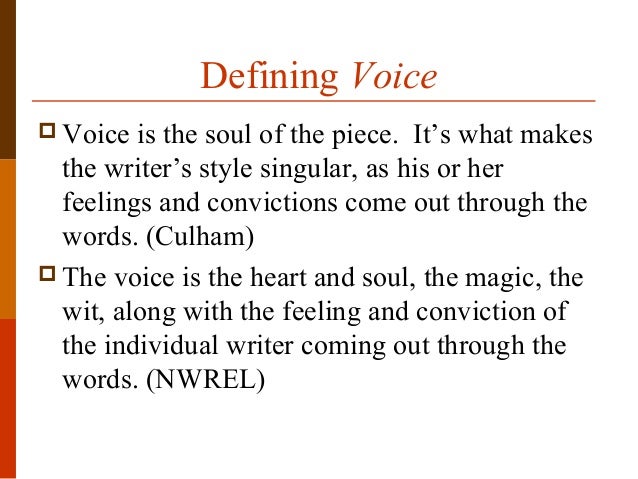We often hear editors and agents speak of wanting stories with a great voice. Unfortunately, the term "voice" is a bit tough to pin down, and yet, it is that one element that is really going to draw a reader into the story and the lives of the characters. Writers with a great voice have the ability to take an ordinary story and make it come alive.
I was just reading a submission that had a unique voice. The plot itself wasn't something I would normally gravitate to, but as I read the project, there was something about the story that kept me turning the pages and deciding that it was not time to pass on the project yet. That is voice!
I do think that many people misinterpret the concept of voice with that of their own unique personality or style. While that perspective does play a role with understanding voice, it is not the entire element.
To begin with, let's look at the definition of voice. This comes from the academic community and the Northwest Regional Education Library
I also want to look at the concept in terms of literature. This comes from a website known as Literary Devices. It's pretty basic but it gives us what we are looking for:
A voice in literature is the form or a format through which narrators tell their stories. It is prominent when a writer places himself / herself into words and provides a sense the character is real person conveying a specific message the writer intends to convey. In simple words, it is an author’s individual writing style or point of view. When a writer engages personally with a topic, in fact, he imparts his personality to that piece of literature. This individual personality is different from other individual personalities, other writers put into their own works. Thus, voice is a unique personality of a literary work. Depending upon the type of work, authors may use a single voice, or multiple voices.
Now, when we look at these, we do see elements of the personality of the author coming through. In other words, if you write snarky prose, or if you write amazingly sensual romance, that will come through. But the key here is how it is done.
The author will "naturally" use specific words, phrases, combinations of both, sentence structure, a balance of narration and dialogue and so forth creating his or her unique voice. You have probably seen this when you pick up a piece of writing. If you read something by Nora Roberts, you know her voice. It isn't the plot structure or the character type, it is the voice. We can also see that her writing will be different from say a Brenda Novak novel. They can each write on the same topic, but their unique voice will make the writing unique.
The voice of the story really cannot be manufactured. This is one of those natural traits that comes out as you relax and just write. If we consider this outside of writing and think of swimmers, Michael Phelps has a unique (we'll call it voice) approach to his turns when he swims. He does what everyone else does, but that uniqueness comes across. If we hid his phase and you watched the turn, you could clearly be able to identify Phelps. It isn't something you can naturally teach someone.
As I read a submission, I can identify if that voice is strong enough to draw us into the full novel. We can really see this in the first several pages of a project. I should note, this is the reason why editors and agents don't need to read a full project to make that decision. That voice has to hook them early on. We can tell early on if that writer has the "voice" we are looking for. We can also tell if the author is trying to be something else with their writing.
Again, I think it is important to note that publishers are looking for authors who bring their own unique voice to the table. They may have specific plot or characters types they like, or even literary tropes they are drawn to, but the voice is what they are really looking for.

Great post. And thanks for mentioning the site Literary Devices. I went to it, and it looks worth bookmarking.
ReplyDelete